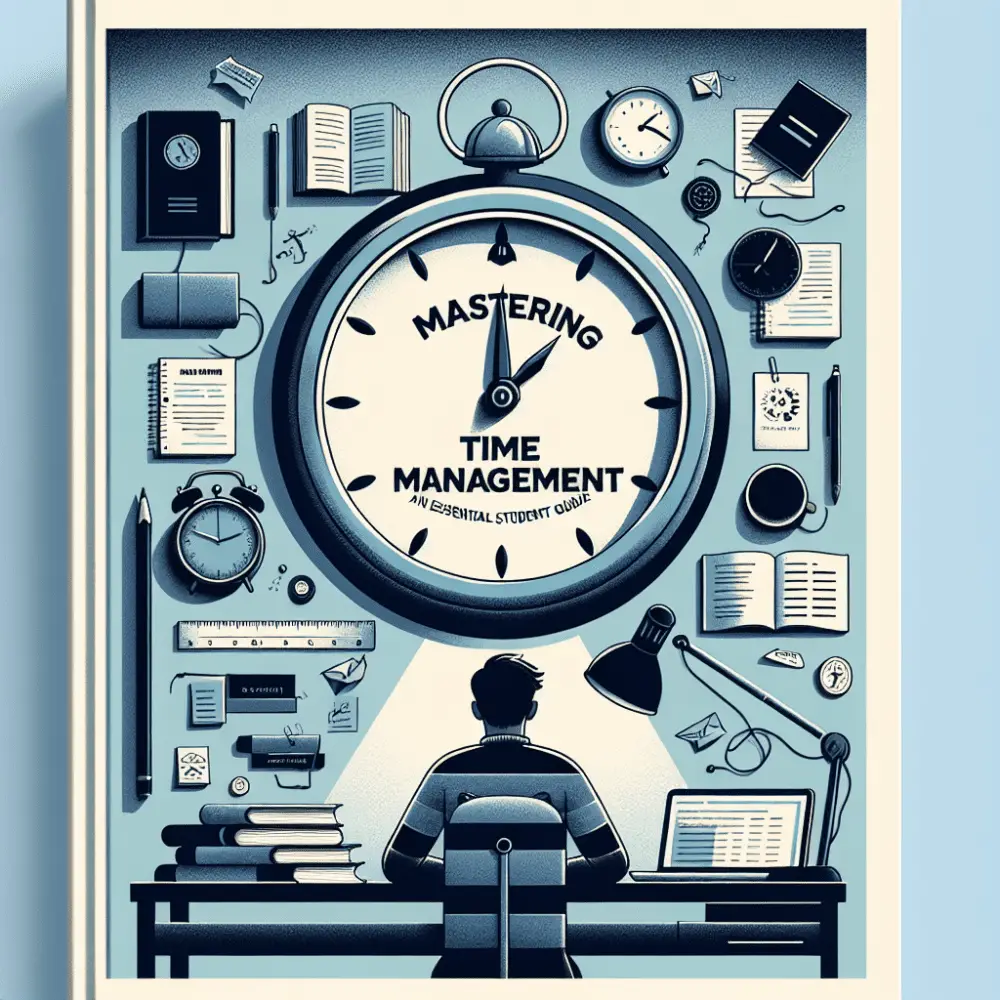
Introduction:
Time management is a crucial skill that every student should master in order to succeed academically. With the demands of coursework, extracurricular activities, and personal commitments, it can become overwhelming to keep track of everything and allocate time effectively. However, by implementing effective time management techniques, students can alleviate stress and maximize their productivity. This comprehensive guide aims to provide students with practical strategies and tips for mastering time management.
The Importance of Time Management:
Effective time management allows students to prioritize tasks, stay organized, and make the most out of their available time. It is a skill that not only benefits academic performance but also helps in developing essential life skills such as planning, discipline, and self-motivation. By managing their time well, students can avoid procrastination and improve overall efficiency.
Setting Goals and Prioritizing Tasks:
One of the first steps in mastering time management is setting clear goals and prioritizing tasks accordingly. Start by identifying long-term goals, such as achieving certain grades or completing projects ahead of deadlines. Break these goals down into smaller, manageable tasks that can be accomplished within specific time frames. Use a planner or digital tools to keep track of deadlines and allocate realistic amounts of time for each task.
Creating a Schedule:
Creating a schedule is an effective way to ensure that all tasks are completed within the available timeframe. Start by blocking out fixed commitments such as classes or work hours. Then allocate specific times for studying, assignments, extracurricular activities, and personal relaxation. Be sure to include regular breaks to avoid burnout.
Avoiding Procrastination:
Procrastination is one of the biggest obstacles to effective time management. To overcome this habit, try using techniques such as the Pomodoro Technique which involves working intensely for 25 minutes followed by a short break before repeating the cycle again. This helps maintain focus while allowing for regular breaks to rest and recharge.
Eliminating Distractions:
Distractions can significantly derail productivity and waste precious time. Minimize distractions by creating a conducive study environment free from unnecessary interruptions. Turn off notifications on electronic devices or use apps that block distracting websites during study sessions. Practice self-discipline and resist the temptation to engage in activities unrelated to the task at hand.
Utilizing Productivity Techniques:
Various productivity techniques can help students become more efficient with their time. The Eisenhower Matrix, for example, categorizes tasks into four quadrants based on urgency and importance, allowing students to prioritize accordingly. Another technique is the Pareto Principle, also known as the 80/20 rule, which suggests that 80% of results come from 20% of efforts. By identifying and focusing on the most crucial tasks, students can optimize their time and achieve better outcomes.
Effective Study Strategies:
Time management extends beyond simply managing time; it also involves implementing effective study strategies. Students should practice active learning techniques such as summarizing information, creating flashcards, or teaching concepts to others. These strategies not only enhance comprehension but also make studying more efficient by reducing time spent reviewing material repeatedly.
FAQs:
1. Q: How do I break a complex task into smaller manageable tasks?
A: Breaking down complex tasks involves dividing them into smaller components that can be tackled individually. Start by identifying the overall goal of the task and then list the specific actions needed to achieve it.
2. Q: Is it better to study for long hours without breaks or take regular breaks?
A: Regular breaks are essential for maintaining focus and preventing burnout. Short breaks every 25-30 minutes allow for mental rest while still ensuring productivity.
3. Q: What should I do if unexpected events disrupt my schedule?
A: Unexpected events are inevitable, but flexibility is key in adapting to changes. Prioritize tasks based on urgency and importance, and adjust your schedule accordingly.
4. Q: How can I balance academic commitments with extracurricular activities?
A: Balancing academic commitments and extracurricular activities requires effective time management and prioritization. Create a schedule that allocates time for both, and be realistic about how much you can handle.
In conclusion, mastering time management is essential for students to succeed academically and in life. By setting goals, creating a schedule, avoiding procrastination, eliminating distractions, and utilizing effective study strategies, students can optimize their time and achieve greater productivity. With practice and discipline, time management becomes a valuable skill that sets the foundation for success.












